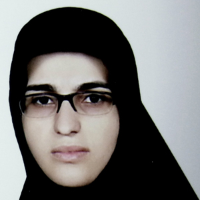The Effectiveness of the Experimental Science Curriculum Based on the Depth of Knowledge on the Level of Cognitive Complexity of Learners in the Experimental Science Course
Author(s):
Article Type:
Research/Original Article (دارای رتبه معتبر)
Abstract:
The purpose of this study was to investigate how an experiential science curriculum, based on depth of knowledge, affects the cognitive complexity level of students in the experimental science course. The researcherws employed a quasi-experimental pre-test, post-test design with a control group. The sample of the study involved 46 fifth-grade male students in Famenin city, chosen through cluster sampling and randomly assigned to either the control or experimental group. A cognitive complexity test, developed by the researchers, was used to assess the fifth-grade experiential science curriculum. Initially, both groups underwent a pre-test to measure cognitive complexity in the science lesson. The experimental group followed the experiential science curriculum utilizing a depth of knowledge model, while the control group received traditional instruction. After the intervention, a post-test evaluating cognitive complexity in science was given to both groups. Covariance analysis of the data (F(1,43)=526/36; p<0/05, p=0/001) indicated a significant difference in post-test cognitive complexity scores between the two groups, demonstrating a positive impact of the experiential science curriculum, based on depth of knowledge, on the cognitive development of students in the science curriculum
Keywords:
Language:
Persian
Published:
Journal of Teacher Professional Development, Volume:8 Issue: 4, 2024
Pages:
27 to 49
https://www.magiran.com/p2742498
سامانه نویسندگان
مقالات دیگری از این نویسنده (گان)
-
The impact of technology-based mathematics education on the development of pedagogical content knowledge (PCK) Among Elementary Education Student -Teachers
Moosa Ebadi *,
Journal of Interdisciplinary Studies in Education, Winter 2025 -
Examining the adaptation of the content of Persian books for the period of lower secondary school with the principles of the Persian language and literature curriculum
Negar Akbari Pakro, *, Morteza Kariminia
Interdisciplinary research in persian Language and literature, Winter and Spring 2025



